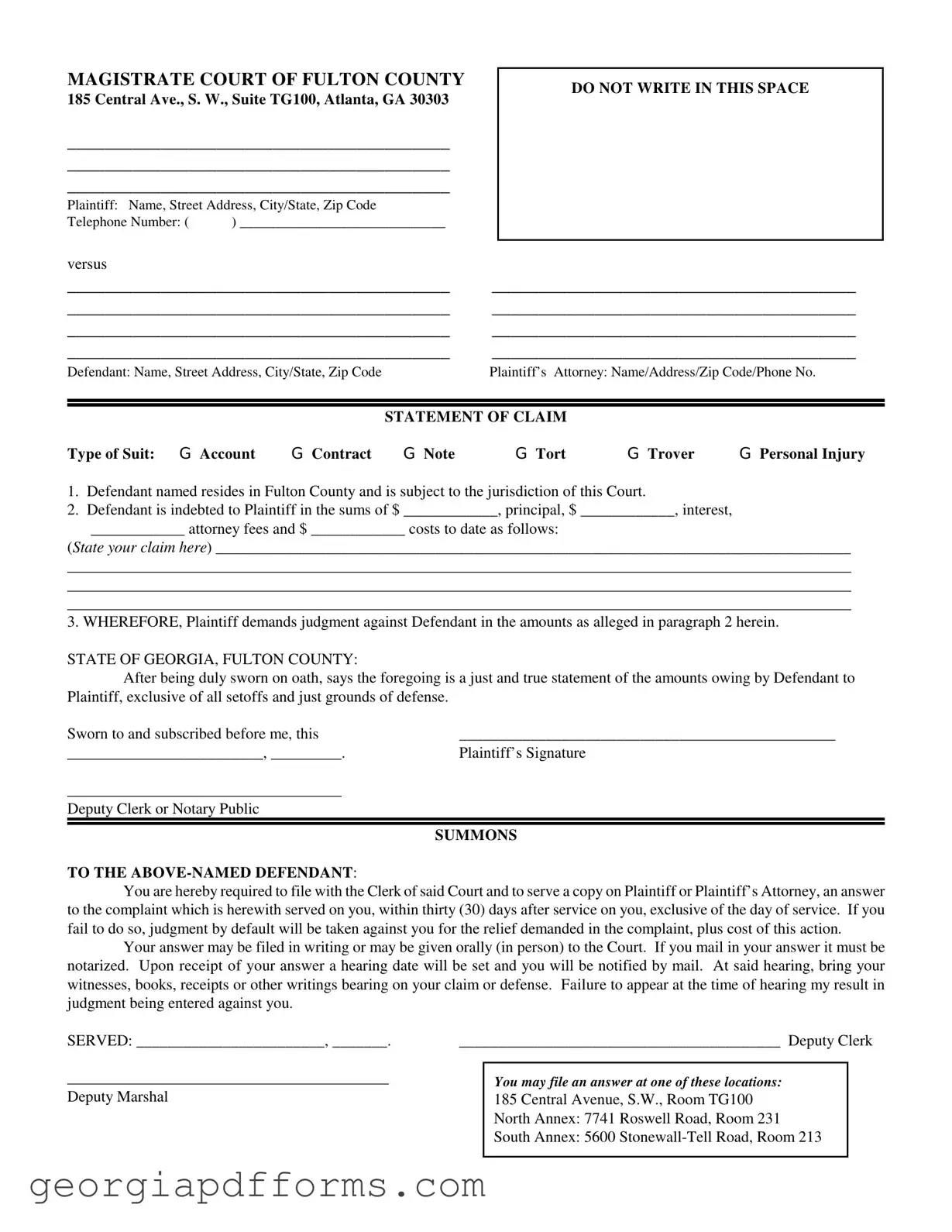What is the purpose of the Georgia Statement Claim Fulton form?
The Georgia Statement Claim Fulton form is used to initiate a civil lawsuit in the Magistrate Court of Fulton County. It allows a plaintiff to formally present their claim against a defendant, detailing the nature of the dispute and the amounts owed. This form is essential for the court to establish jurisdiction and for the defendant to understand the claims being made against them.
Who can file a claim using this form?
Any individual or business entity that has a legal claim against another party residing in Fulton County can file a claim using this form. The plaintiff must provide accurate information about themselves and the defendant, including names, addresses, and the basis for the claim. It is crucial that the plaintiff ensures they have the right to pursue the claim before filing.
What types of claims can be filed with this form?
This form accommodates various types of claims, including accounts, contracts, notes, torts, trover actions, and personal injury claims. It is important for the plaintiff to select the appropriate type of suit that best represents their situation to ensure the court processes the claim correctly.
What information is required to complete the form?
The form requires the plaintiff to provide detailed information, including their name, address, and contact number, as well as the defendant’s information. Additionally, the plaintiff must specify the amount owed, including principal, interest, attorney fees, and costs. A clear statement of the claim must also be included to provide context for the court and the defendant.
What happens after the form is filed?
Once the form is filed with the court, a summons will be issued to the defendant. The defendant is then required to respond to the claim within thirty days. If they fail to do so, a default judgment may be entered against them, which could result in the plaintiff receiving the relief they seek without further court proceedings.
Can the defendant contest the claim?
Yes, the defendant can contest the claim by filing an answer with the court. This answer can be submitted in writing or orally in person. If the answer is mailed, it must be notarized. The court will then schedule a hearing, where both parties can present their evidence and arguments regarding the claim.
What should I bring to the hearing?
At the hearing, it is important to bring all relevant evidence, including witnesses, documents, receipts, and any other materials that support your claim or defense. Failing to appear at the hearing may result in a judgment being entered against you, so preparation is key to presenting your case effectively.


